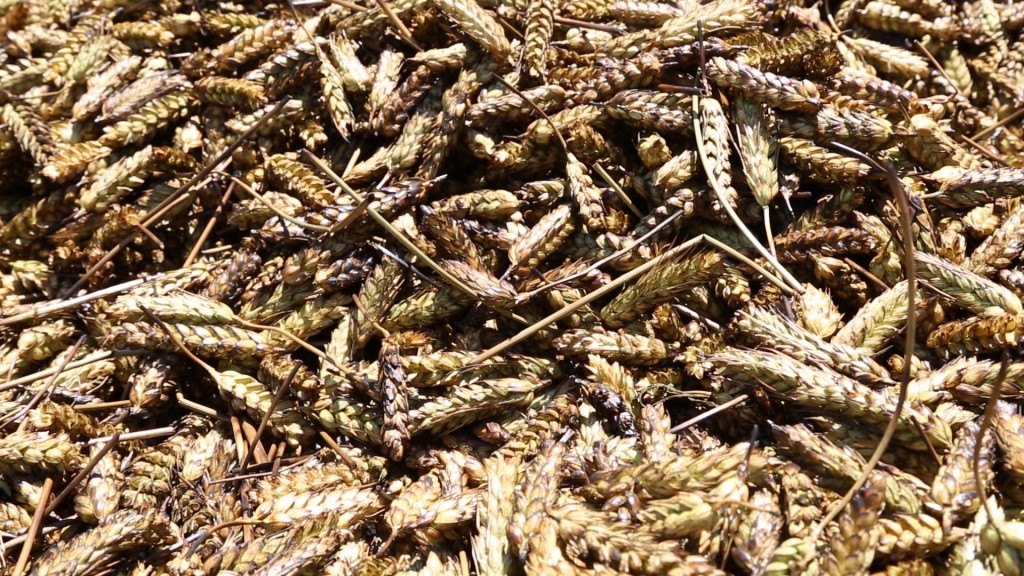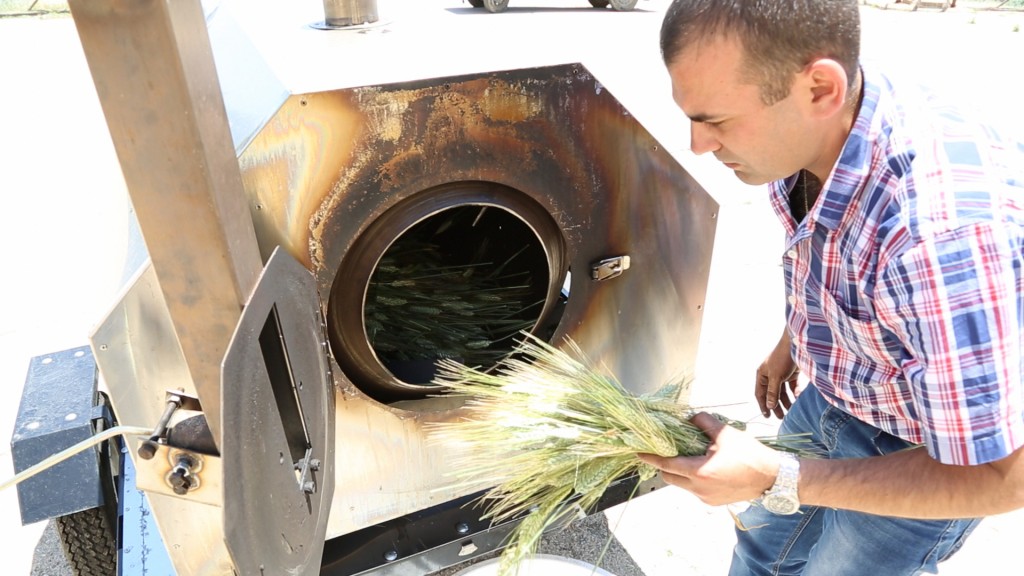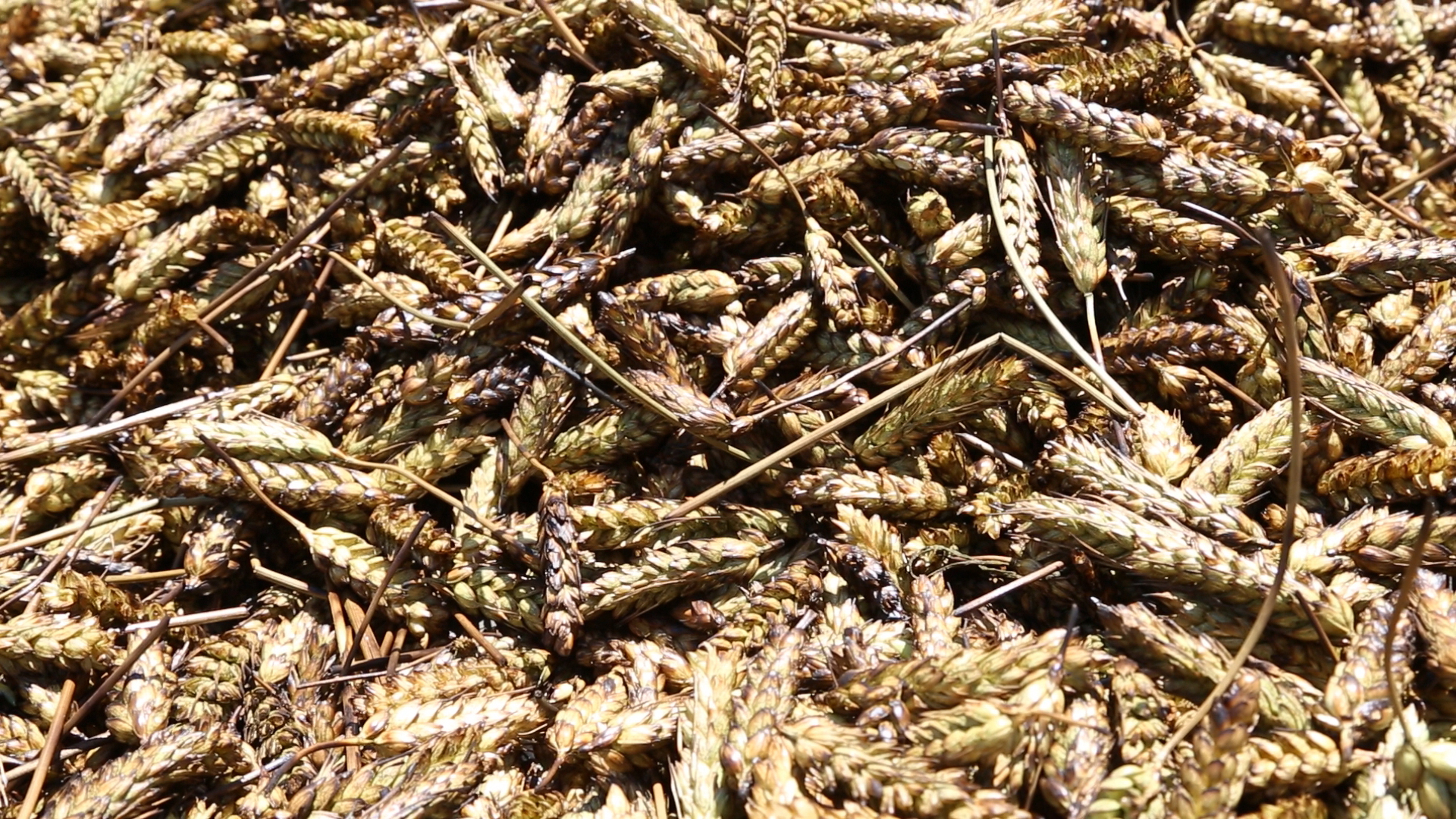Despite showing up in cookbooks written more than 800 years ago, freekeh—green wheat grains fire-roasted and cracked—is still mostly unknown. The global thirst for new, innovative foods means this niche market is on the cusp of celebrity and turning up on forward-looking menus across the world. Even renowned Jamie Oliver called it his “favorite new superfood.”

Lebanese women growing and processing freekeh from the women’s Al-Imad Cooperative in Southern Lebanon might not know Jamie Oliver, but they are aware of freekeh’s potential. Every year, they purchase an average of 500 kilograms of freekeh from farmers, and take it to the market.
“The freekeh still required a lot of work. We had to sort out stones and dirt before we could take the product to any markets,” explains Nawal Jawad, Manager of the Al-Imad Cooperative.
To get to freekeh, early harvest wheat is spread across the ground all day and then burned in small piles. The grain is then spread over the ground for another day of drying before it’s dehulled. After spending an average of three days on the ground, grains inevitably mix with gravel and other contaminants. The product also has advantages: a shorter growing season means less water and no pesticides.
The product’s reputation for being impure has made consumers hesitate and blocked its access to formal market channels. The Al-Imad Cooperative reached out to the USAID Lebanon Industry Value Chain Development program to help them improve quality and methods of processing.
To address these challenges, USAID partnered with US food technology firm, National Instruments, to design and build a freekeh roaster and a drying machine. After visiting Lebanon, National Instrument engineers pioneered and manufactured unique machines that ensure farmers can produce freekeh on a large-scale with consistent, high quality results that meet international food safety standards.
In 2015, National Instruments provided Al-Imad with one roaster and one drying machine at a discount. Under the partnership, Al-Imad covered 25 percent of the costs, and USAID the rest.
The USAID program then partnered with the Lebanese Agriculture Research Institute to introduce high-yielding wheat varieties bred for arid conditions. In 2015, a total of 28 of the cooperative’s suppliers planted the new variety of wheat.

The cooperative then tested the new roaster and equipment on the new variety. Tests showed a cleaner product that could easily meet food safety standards without compromising the smoky flavor desired by consumers. In 2015, the cooperative produced one metric ton, doubling the amount they purchased in 2014.
As a result of the technology, Al-Imad Cooperative has increased its capacity to produce freekeh and encouraged wheat suppliers to supply more wheat for freekeh production. USAID and partners are now raising awareness of the new technologies for an additional eight Lebanese freekeh producers and processors. Last year, USAID, the Al-Imad Cooperative, National Instruments and the Rural Delights Marketing Cooperative held a workshop to introduce the new technologies to exporters, wholesalers, and producers.
Wholesalers and exporters are already placing very large orders for the 2016 season, while cooperatives are gearing up to meet that demand.


Samir, you can contact Hill Skaff with DAI to learn more about how this program may be able to help you and your team. Hill_Skaff@dai.com
My partner in lebanon, Commodities & trade sal, is looking foreward to produce frekeh in the Jubail area after been granted some lands.
We are traders and packers of all sort of seeds to the lebanese market and would like to know wheher your assistance can be granted to us.
looking foreward to your reply